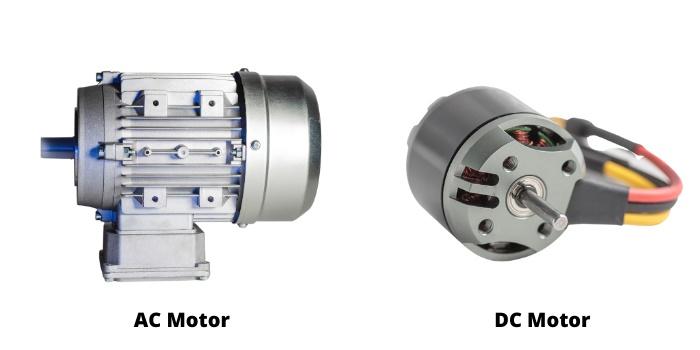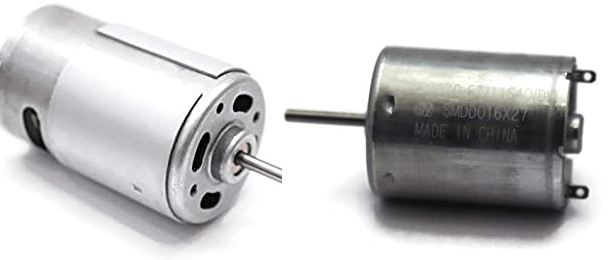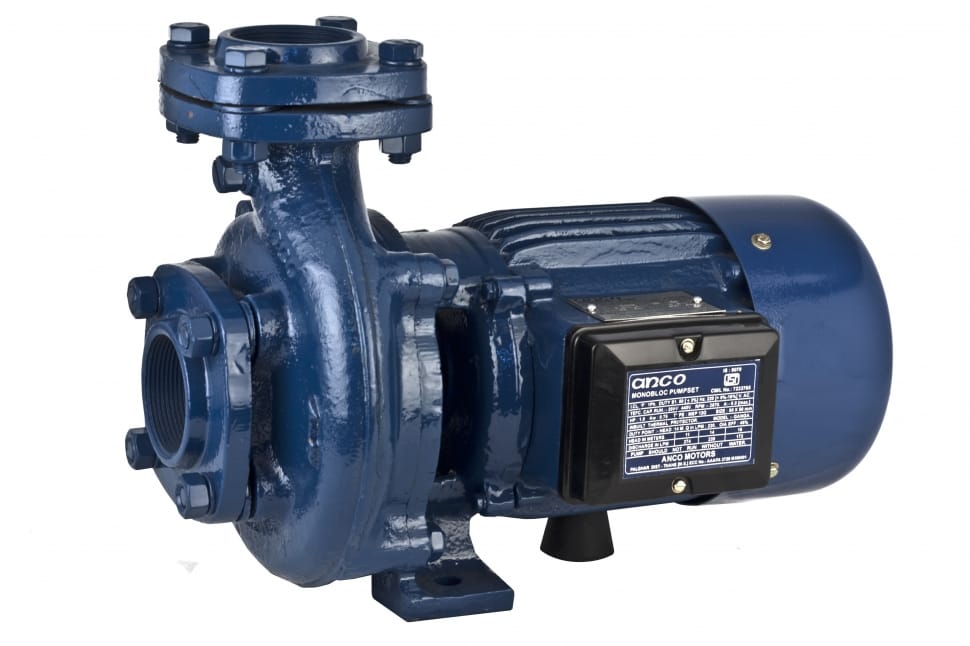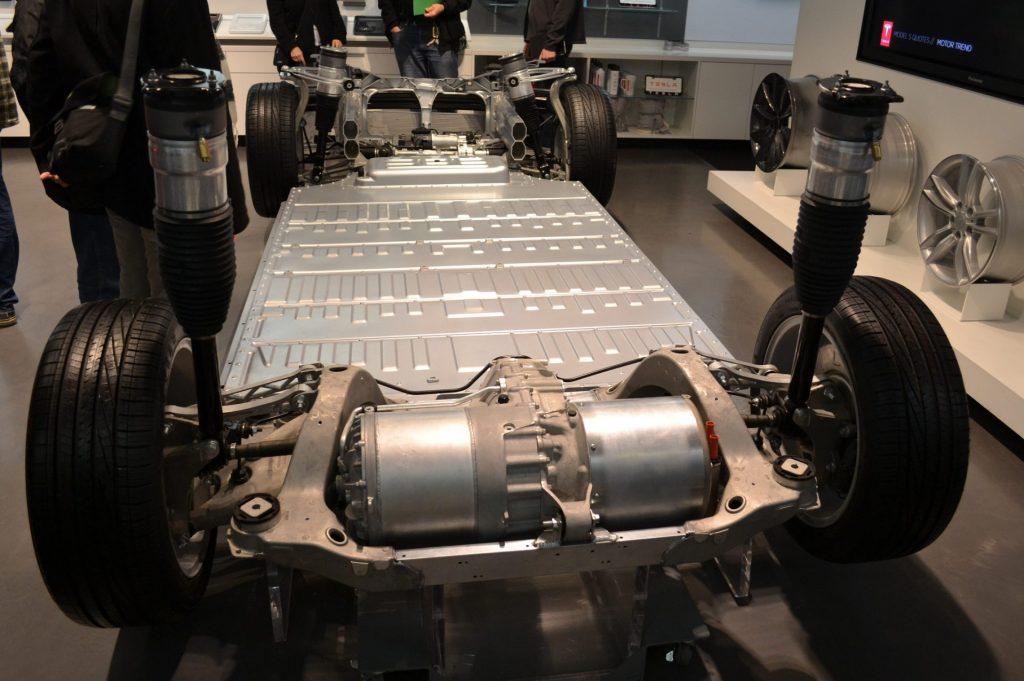Which Is Better For Your Electric Vehicle: DC Or AC Motor?
By Muhammad Fahad
Updated Feb 18, 2024

For the last decade, electric vehicles have truly become a success story in the United States. Technology has been improving rapidly, and the cost of ownership is dropping. Electric vehicles are now cheaper to operate and maintain than gasoline cars, generating no emissions. But there is still one big question about electric vehicles: which type of motor is best?
Table of Contents
Now two types of motors are installed in electric vehicles, and they are namely:
- Direct current (DC) motors
- Alternating current (AC) motors
They have been around for a long while and are used in various applications. But which one is better for an electric vehicle? Let's find out.
What Is A DC Motor?

A DC motor is an electric motor that uses direct current to convert electrical energy into mechanical energy. The most common type of DC motor is the brushed DC motor, which has two terminals (positive and negative) and a commutator. Commutators reverse the direction of current flow in the winding, allowing the motor to rotate in both directions.
DC motors have been around for a long time. They were the first type of motor to be used in electric vehicles. DC motors are simple and rugged, and they can be very efficient. But there are some drawbacks to DC motors. One is that they require a controller to reverse the current flow in the winding, which can add complexity and cost to the system. Another drawback is that DC motors can be difficult to start from a standstill.
What is an AC Motor?

An AC motor is an electric motor that uses alternating current to convert electrical energy into mechanical energy. AC motors are more efficient than DC motors, and they can start from a standstill without a controller. But AC motors are more complicated and expensive than DC motors. They have a variety of applications including electric vehicles which make them a good choice.
As far as the different types of AC motors are concerned, there are two types of AC motors: induction motors and synchronous motors.
Induction Motor: These motor types are the most common type of AC motor. As the name suggests, they operate on the induction principle. An induction motor has a stator (the stationary part) and a rotor (the rotating part). The stator is made up of coils of wire that create a magnetic field. The rotor is made of a material that is attracted to the magnetic field, such as iron. When the stator's magnetic field is turned on, it induces a current in the rotor, which causes the rotor to rotate.
Synchronous Motor: These motor types run at a constant speed and are often used in applications where precise speed control is necessary. A synchronous motor has a stator (the stationary part) and a rotor (the rotating part) just like the induction motor. The only difference is that the rotor is made of permanent magnets instead of coils of wire. When the stator's magnetic field is turned on, it causes the rotor to rotate at the same speed.
Which Motor is Better Specifically for Electric Vehicle?
There is no easy answer to this question. It depends on many factors, including cost, efficiency, and application. But in general, AC motors are more efficient than DC motors and they can start from a standstill without a controller. So, if you are looking for a motor for your electric vehicle, an AC motor is a good choice.
Car Manufacturers With Different Models of AC/DC Motor Vehicles
To give you a better insight on what motor type to consider when purchasing an electric vehicle, here are a few car manufacturers focusing on the different motors models.
- Tesla - All models use an AC induction motor
- Nissan - The Leaf uses an AC synchronous motor
- Chevrolet - The Volt and Bolt use an AC induction motor
- BMW - The i3 uses an AC synchronous motor
Now that you know a little more about DC and AC motors, you can decide which type of motor is best for your electric vehicle.
Does The Type of Motor Matter When Purchasing EV?
The type of motor does play an important role when it comes to purchasing an electric vehicle. AC motors are more efficient than DC motors, and that's one good enough reason why you should consider checking your EV for AC motors before purchasing. However, when it comes to deciding what kind of AC motors work best in your use case scenario, there are multiple factors such as cost, travel distance, travel time and other similar aspects that you need to consider.
Why Are DC Motors Not Used in Most Electric Vehicles?
The main reason why DC motors are not used in most electric vehicles is that they are not as efficient as AC motors. They also require a controller to start from a standstill, which adds to the cost and complexity of the system. AC motors are more efficient and can start without a controller, making them a better choice for electric vehicles.
Do Tesla Cars Use AC or DC Motors?
All Tesla cars use AC induction motors. Tesla is a big company that focuses on its brand name's reliability in the market. Since induction motors are more efficient than DC motors and can start from a standstill without a controller, these motor types are most widely found in Tesla vehicles across the United States.
What is the Most Powerful EV Motor?

The most powerful EV motor would be the one that provides the most torque. The unit for measuring torque is Newton-meters (Nm). The motor with the highest torque rating is the Tesla Model S P100D, which has a torque rating of 10500 Nm.
Conclusion
As you can see, there are many factors to consider when choosing a suitable motor for your electric vehicle. In general, AC motors are more efficient than DC motors and are the most reliable. However, the specific motor type (AC) that is best for your application depends on the cost, travel distance & the type of vehicle you're planning to purchase.
Hope you found this article helpful, until next time.
